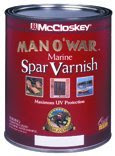The whole thing with finishes can get pretty confusing. Home improvement stores are loaded with different types. Sometimes store employees don't know any more about them than you do and it is hard to know which finish to use for what. Here is a little guideline to go by for deciding what finish to use on your next project.


Boiled Linseed Oil
Next is Boiled Linseed Oil. It comes from squeezing a flax seed. I have used gallons of it in my lifetime. I especially like the way it brings out a rich reddish brown in walnut. It is thicker in consistency than mineral oil, and holds up better, although it is not a "hard " finish. It will darken some wood a little bit over time. It wipes on with a rag. Wait a few minutes and then wipe of the excess. I find that linseed oil is at it's best when your project is sanded silky smooth. I recommend sanding down to 400 grit or finer to get the full effect.

Tung Oil. Comes from the Tung tree. Better durability than linseed oil. It wipes on. It dries hard enough to require sanding between coats. It is sometimes used for outdoor applications. The biggest problem I have had with tung oils is that it often takes a long time to dry, occasionally taking several days. It does though produce a very nice hand rubbed finish, with nice lustre.
Disadvantages: Extended drying times. some people may be allergic to it as it comes from a nut bearing tree.
 Shellac. One of my all time favorites. The more I use it, the more I like it. It is a very forgiving product that is entirely suitable for beginners. Shellac is non toxic enough that it is often used in food manufacturing. My understanding is that the candy Skittles has a minute amount of shellac in it's coating to make it shiny. Can be brushed on or sprayed. Comes in amber or clear and can even be tinted. I use it often as a base coat, before I apply polyurethane to avoid "fish eye" from silicone contamination.
Shellac. One of my all time favorites. The more I use it, the more I like it. It is a very forgiving product that is entirely suitable for beginners. Shellac is non toxic enough that it is often used in food manufacturing. My understanding is that the candy Skittles has a minute amount of shellac in it's coating to make it shiny. Can be brushed on or sprayed. Comes in amber or clear and can even be tinted. I use it often as a base coat, before I apply polyurethane to avoid "fish eye" from silicone contamination.
Lacquer. A hard finish. Not used as much in furniture finishing as it once was due to the popularity of polyurethanes. Is capable of producing showroom, mirror type results. Numerous coats may be applied to achieve the desired effect. 2 coats may be all you need, but I was at a woodworking seminar where some people had applied 15 or more coats, hand sanding between every coat. Craziness!
Advantages: A hard finish, Can produce incredible results with practice. Brush on or spray.
Disadvantages: Not as hard as polyurethane, scratches easier, I do not use it for dining room table tops where durability is crucial.

Marine Spar Varnish. This has long been an old stand by for outdoor and boat finishes. It wears very well except in extreme conditions. Not suitable for fine furniture finishes because of it's thick consistency, but very good for an outdoor project that requires a hard, coated, finish. Usually brushed on.
Advantages: Great durability for outdoor projects.
Disadvantages: Not usually used for fine furniture finishes.

Polyurethane. I use it a lot these days. It has become very popular because of it's great durability. Polyurethanes are often used for wooden floors. Most professionals hate using it as a fine finish, because it is not as forgiving as lacquer. I use it a lot for fine finishes because most of my customers demand it's durability. This is a finish that takes some practice to do a tabletop, but for the average DIYer, it may be your best bet. I recommend you have a couple small projects under your belt using poly, before you go to a large project.
Advantages: Great durability. Very hard finish. Brushes or sprays on. Rarely will you need more than 2 or 3 coats.
Disadvantages: Not as forgiving as lacquer. May take a little practice to get the hang of, especially on things like large table tops.
Those are the main finishes. I hope that helps. There is a learning curve when applying finishes, just like there is with anything, but don't let that intimidate you. You can always post me a question in the comments section if you need assistance. Every one of the products mentioned is available in my online store.

I had no idea that there were so many options! Some I had never even heard of. Thanks so much for putting this together.
ReplyDelete{Rebekah}
OMG! Thanks so much for explaining all these!! It can be sooo confusing!
ReplyDelete*hugs*deb
Thank you so much for this post. Its exactly what I needed. :)
ReplyDelete